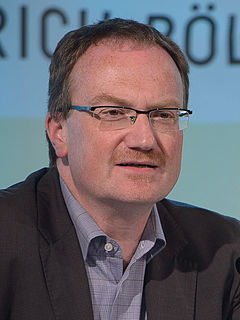A Quote by Janet Yellen
The Federal Reserve's objectives of maximum employment and price stability do not, by themselves, ensure a strong pace of economic growth or an improvement in living standards. The most important factor determining living standards is productivity growth, defined as increases in how much can be produced in an hour of work.
Quote Topics
Related Quotes
The government must nurture an eco-system where the economy is primed for growth; and growth promotes all-rounddevelopment. Where development is employment-generating ; and employment is enabled by skills. Where skills are synced with production; and production is benchmarked to quality. Where quality meets global standards; and meeting global standards drives prosperity. Most importantly, this prosperity is for the welfare of all. That is my concept ofeconomic good governance and all round development.
I think it's fairly easy to provide a moral defense of capitalism. It has been - over the last 200 years - the underlying basis for enormous increases in productivity and human welfare and rising living standards, particularly in the United States, and in the industrialized nations but in fact, in most parts of the world.
Before information age, living standards basically were flat. Since then, they've been growing 2 percent a year were about 30 times richer. So technology, machines is really, you know, arguably the most important thing that's happened to humanity in terms of our living standards. You could look to the introduction of digital computers in the 1950s.































